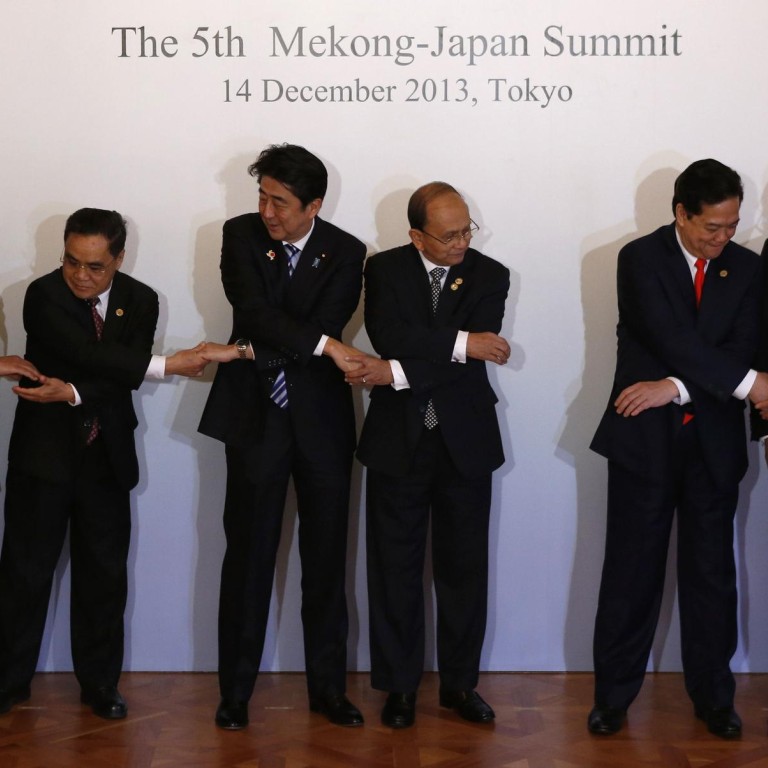
Asean endorses Japan as active peacemaker, in boost for Abe
Summit also calls for freedom of air and sea, and Japan's prime minister follows it up by urging China not to raise tensions over island disputes
Japanese Prime Minister Shinzo Abe's ambition to lead a militarily active country got a boost yesterday when leaders from 10 Southeast Asian nations encouraged Tokyo to make a "proactive contribution to peace".
In a statement released after a summit in Tokyo, the leaders of the Association of Southeast Asian Nations (Asean) said they "looked forward to Japan's efforts in contributing constructively to peace, stability, and development in the region".
The statement will be seen as a mild regional rebuke for China, which has sovereignty disputes with Japan and with four members of the bloc.
Japan and Asean also called for freedom of the air and sea, in the first major gathering of the continent's leaders since China ramped up tensions with a controversial air defence zone.
China and South Korea frequently invoke the horrors of the last century in warnings against a more engaged Japanese military, but Tokyo's relations with Southeast Asia - much of which it also brutally invaded - are less coloured by history.
The endorsements for Japan came at the end of a special summit to mark 40 years of ties with Asean, which saw Tokyo promise two trillion yen (HK$150 billion) for the region over five years.
Japanese diplomats had been pushing for a forceful communiqué, although they acknowledged that an explicit reference to China was always going to be hard for countries in Beijing's immediate economic orbit.
The Philippines, Vietnam, Malaysia and Brunei all have their own disputes with China over territory in the East China Sea, and are thought to be receptive to Japanese overtures.
But all 10 members of the bloc have to tread a fine line to avoid irritating China, whose vast economy is vital to the region.
"To the Chinese, we are calling on the withdrawal of all the measures that violate these general principles," Abe said. He said Japan would stick to its advice to airlines to continue their operations as they had before China's announcement.
"Raising tensions in this region is to nobody's advantage," Abe said in a nationally televised news conference showcasing what he called Japan's "special partnership" with Asean.
"Asean's role as a centre of economic growth depends on freedom of the seas and the air," Abe said.
Corey Wallace, a Japan specialist at Auckland University, said Tokyo's financial assistance to the region would provide a counterweight to reliance on China.
"If Japan helps Asean in its region-building goals … not only will Japan be seen favourably as a leader, but it will enable Asean itself to assert increased independence in the future distribution of power," he said.
